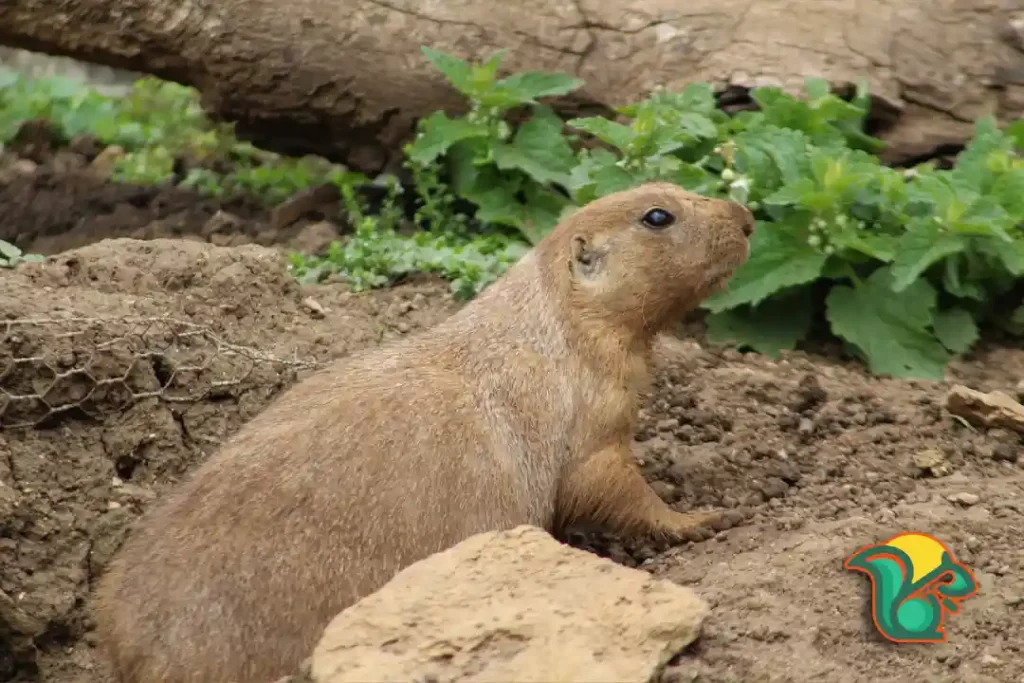Do Groundhogs have Good Eyesight and Hearing?
Groundhogs on your yard can damage the crops and can weaken the foundation of your house by building burrows underneath. So, planning on hunting it down isn’t wrong at all! Not only catching the woodchucks of your lawn but you can also plan to catch the wild groundhogs!
But there are things you have to be careful of. Yes, we are talking about their, senses! From their nose to eyes to ears- everything is important! Do groundhogs have good eyesight and hearing? Or are they blind and don’t have ears?
Let’s deal with the truth today. Come on!

1. Do groundhogs have good Eyesight?
A very common question of animal lovers is, are groundhogs blind? Tell us, why do you think that groundhogs can be blind? Well, we know the reason. We will discuss it later. Let’s come to the point of the eyesight of a woodchuck.
How is the eyesight of a groundhog? Do groundhogs have bad vision or they can see perfectly? Groundhogs have very good eyesight. According to the hunters, the groundhogs are capable of identifying a vehicle’s movement from a distant area.
So, you can already get how good their eyesight is. Along with this, they dig holes and live inside them. They can easily identify the danger from about 250-300 yards away. And this is not much common for such small animals.
Thus, they can scamper away when you take the first step towards them! No matter you are dealing with listening or hearing, in short, they can sense better than a lot of other animals. Their eyesight makes them smart.
And so, even if the area is dangerous and there are dangers before, they get out of their hidden stop after a few minutes. In this way, they can check if the situation has changed or not. Whenever it comes to catching them, there’s nothing more important than patience.
🐿 Are Baby Groundhogs Blind?
Yes, after the birth of a groundhog, they do not have any eyesight. The same goes for their ears. They are deaf and blind. However, once they start maturing, they start getting their eyesight. After three months, the groundhogs get their vision.
And soon after they get their eyes and start seeing things, they leave their parents. Eventually, they end up searching for places to settle and digging up holes to burrows for living inside them.
Typically, a groundhog will live for 3 to 6 years or a bit more. So, though they don’t have eyesight when they are babies, they get it back after they get completely mature.
🐿 Can Groundhogs see at Night?
Yes, groundhogs have good eyesight. But can groundhogs see in the dark? A lot of other animals have eyesight that works in the darkness. Unfortunately, groundhogs are not often seen in the dark. Rodents like groundhogs are diurnal animals.
When the sun goes down, it’s very uncommon to see a groundhog moving. Mostly, they eat and work the whole day while they sleep at night. Just like any other diurnal animal, groundhogs are also seen in the days mostly and not at the night.
🐿 Can Groundhogs see Colors?
According to researches, we know that groundhog isn’t very much familiar with colors. In the research, scientists have taken dark colors towards the groundhogs. Seeing dark colors, groundhogs get attracted. This is the case for the woodchucks that you pet.
But the thing is the same for the wild groundhogs too. If you are wearing darker colors, it will like you more. They don’t get attracted to lighter colors. This is how we know that groundhogs only understand the darkness or light of a color and not the actual color.
So, are you petting a Whistle Pig already? In the case of the pet groundhogs, you might see severe diseases like ammonia too.
Reasons for Good Eyesight
- Good eyesight highly depends on our diet, that’s something we know. More than you love veggies, groundhogs love them! And this is why groundhogs have incredible eyesight. The leafy veggies are great in improving eyesight. Along with this, any kind of peas and beans usually increase powerful antioxidant duo. In short, any veggies that include antioxidants will improve your vision and the basic food for groundhogs is vegetables.
- On the other hand, if you have ever heard about the Science of Reflexology, you already know that walking on grass improves vision. Woodchucks not only walk on the grass but also eat grass and weed!
2. Do Groundhogs have Good Hearing?
Groundhogs are well-known for smelling things. But do they hear you when you are coming as a danger before him? Yes, they do! Their hearing is extremely keen. As they are prey animals, they always keep their ears and eyes sharp.
They can easily sense if they hear a human walk across the grass. We are not talking about walking closely, no! Even if you are 500 yards away, a woodchuck will easily listen to it and will get protection. They can easily hide but it doesn’t mean they are so fast.
Their burrows are their protection. But if they can hear that the predators are too close, if it’s necessary, they will climb trees. Along with this, swimming is another incredible yet mostly hidden skill of a groundhog when it comes to safeguarding their lives. So, are groundhogs smart and if they are, how much?
🐿 Do Groundhogs Have Ears?
Yes, groundhogs have ears. People often question this because the ears of the groundhogs are tiny. These tiny ears are very cute. With this, they have black eyes. Almost all the rodents from this family line have ears.
Most of the marmot animals have small ears like woodchucks. Their hearing capability is as good as their smelling capability. They will easily hide inside their holes when they see or hear a predator.
Are you thinking that it will attack you if you try to catch it?
Wrap Up
Now you know that groundhogs are not only good at smelling but they do a great job when it comes to seeing and hearing. If you are a predator or you want to hunt down the woodchuck, you have to be patient and careful. Groundhogs are smart; trust us!




